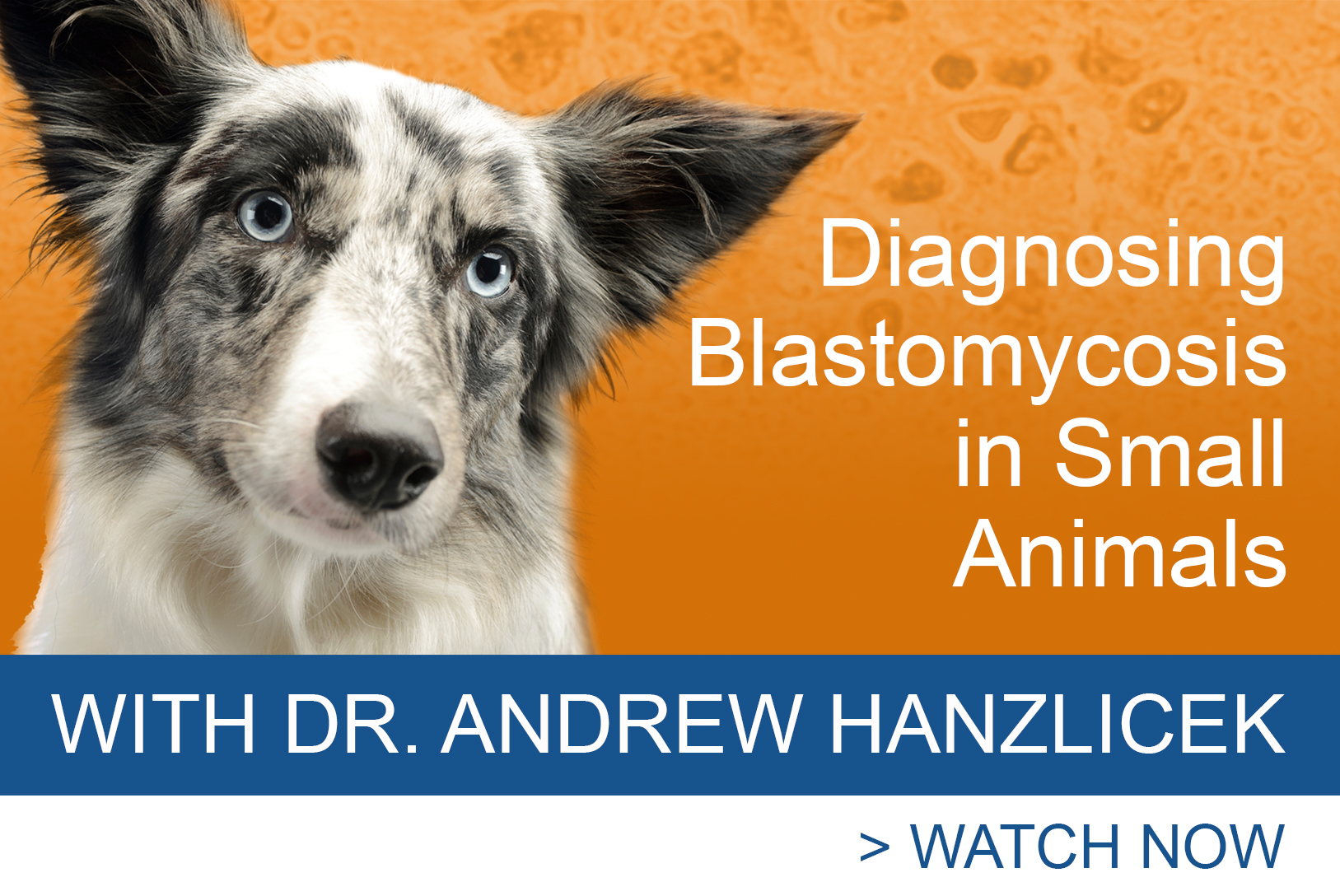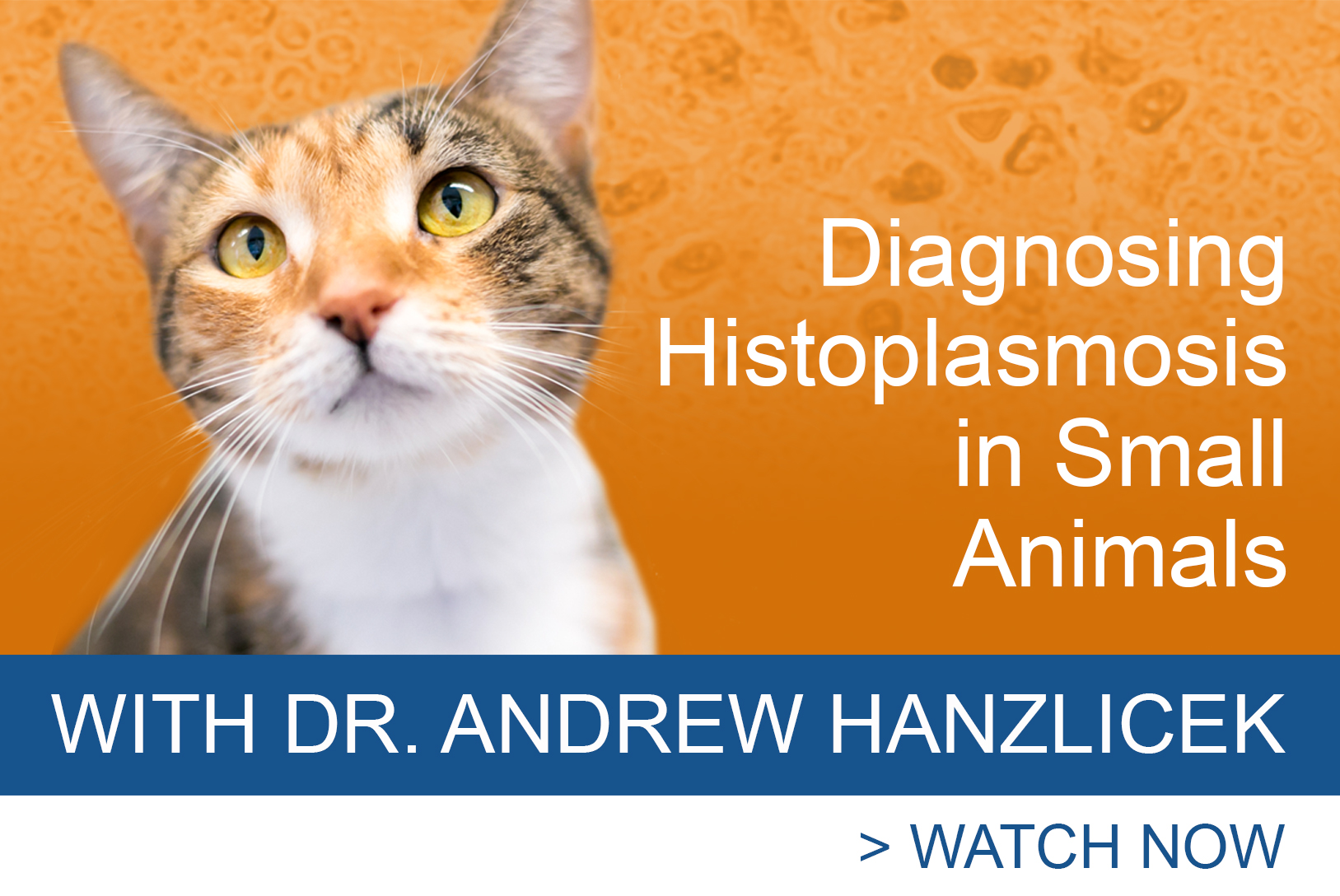Resources
Account Set Up
Sign up to be client
Test Menu
Download our Test Menu
Test Schedule
Download our Test Schedule
Order Forms
Fill out an Order Form
Shipping Info
Check out shipping requirements
Learning Resources
View our library of material
Holiday Schedule
See our Holiday Schedule
Get Started
Set Up an Account. Download a Test Menu. Start Ordering Tests.
Diagnosing Coccidioidomycosis (Valley Fever) In Small Animals with Dr. Andrew Hanzlicek | MiraVista Veterinary Diagnostics
Additional Lectures
Diagnosing Blastomycosis In Small Animals with Dr. Andrew Hanzlicek | MiraVista Veterinary Diagnostics
Diagnosing Blastomycosis In Small Animals with Dr. Andrew Hanzlicek
Diagnosing Histoplasmosis In Small Animals with Dr. Andrew Hanzlicek | MiraVista Veterinary Diagnostics
Diagnosing Histoplasmosis In Small Animals with Dr. Andrew Hanzlicek
Description
In this lecture, Dr. Hanzlicek walks through his presentation on diagnosing Coccidioidomycosis, also known as Valley Fever or “Cocci,” in small animals. Coccidioidomycosis is caused by the dimorphic fungus, Coccidioides. The spores of the fungus are found in the soil of warm climates in the southwestern United States, including Arizona, New Mexico, Utah, Nevada, Texas, and California.
Recently, cases have been detected in Washington and Oregon. Coccidioidomycosis is also found in parts of Mexico as well as Central and South America.
Coccidioidomycosis develops when airborne spores are inhaled after soil is disturbed, often through running, hiking, agricultural maintenance, or localized storms. If traveling with pets to these areas, it’s recommended they’re kept indoors to lower the risk of infection.
Symptoms of Coccidioidomycosis overlap with other inflammatory diseases. Clinical signs include:
• Weight loss
• Lethargy
• Fever, unresponsiveness to antibiotics
• Coughing
• Abnormal breathing: Rapid (tachypnea) or Labored (dyspnea)
• Lameness
• Swelling of the joints
• Swollen lymph nodes (Lymphadenopathy)
• Ulcerative or draining skin lesions
• Central nervous system (CNS) signs
• Blindness
• Anorexia
At MiraVista Veterinary Diagnostics, we offer a wide selection of tests for systemic mycoses, both antigen and antibody, as well as therapeutic drug monitoring for itraconazole. Our most sensitive tests for Coccidioidomycosis are a combination of the MVista® Coccidioides Canine lgG Antibody EIA (Test Code: 329) and Coccidioides Antibody by lmmunodiffusion (Test Code: 320). The MVista® Coccidioides Antigen Quantitative EIA (Test Code: 315) also proves useful for treatment monitoring. It’s recommended that our team be sent both urine and serum for an accurate diagnosis of Coccidioidomycosis. Our research team works to develop new assays and improve our existing assays every single day.

